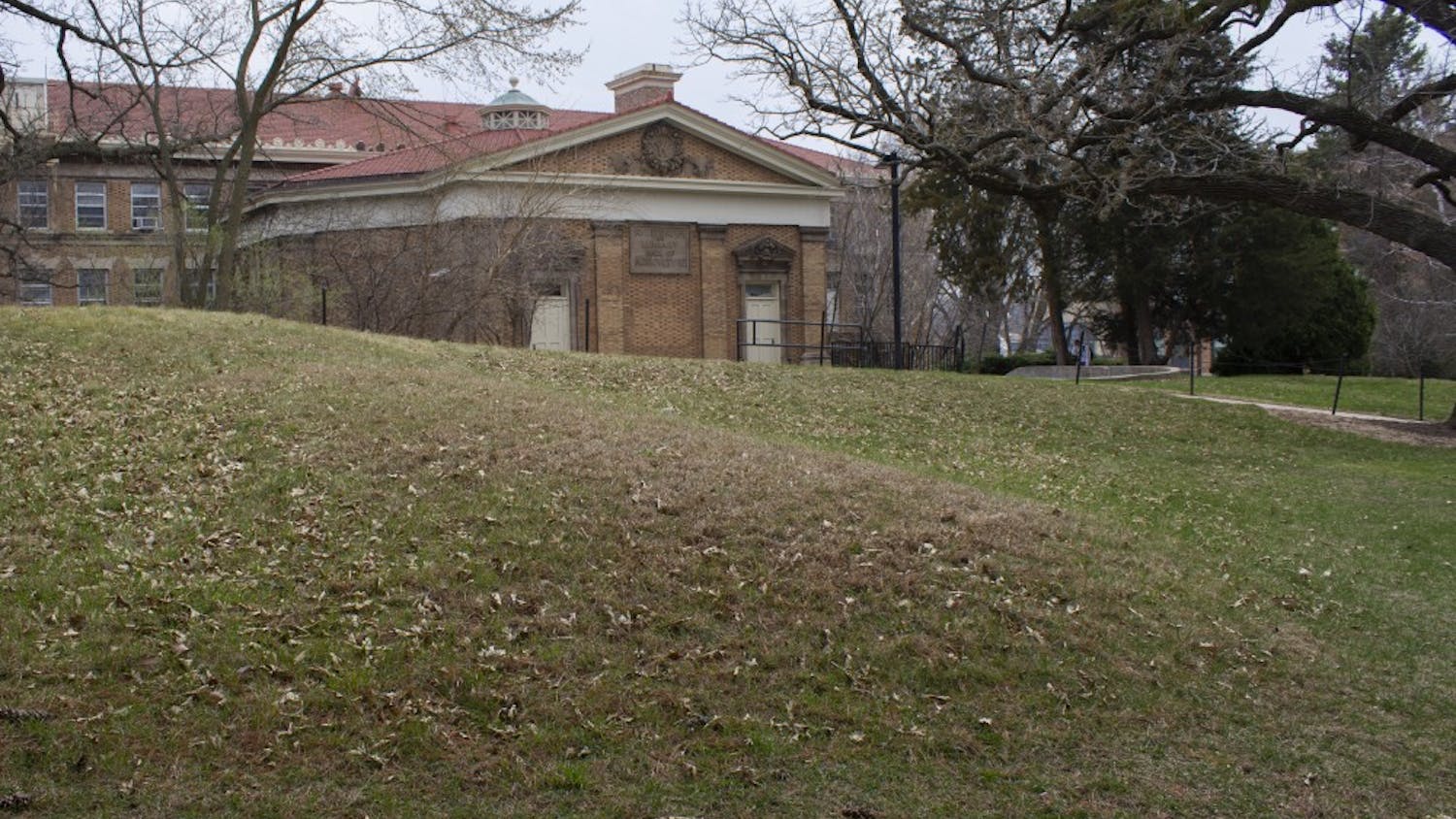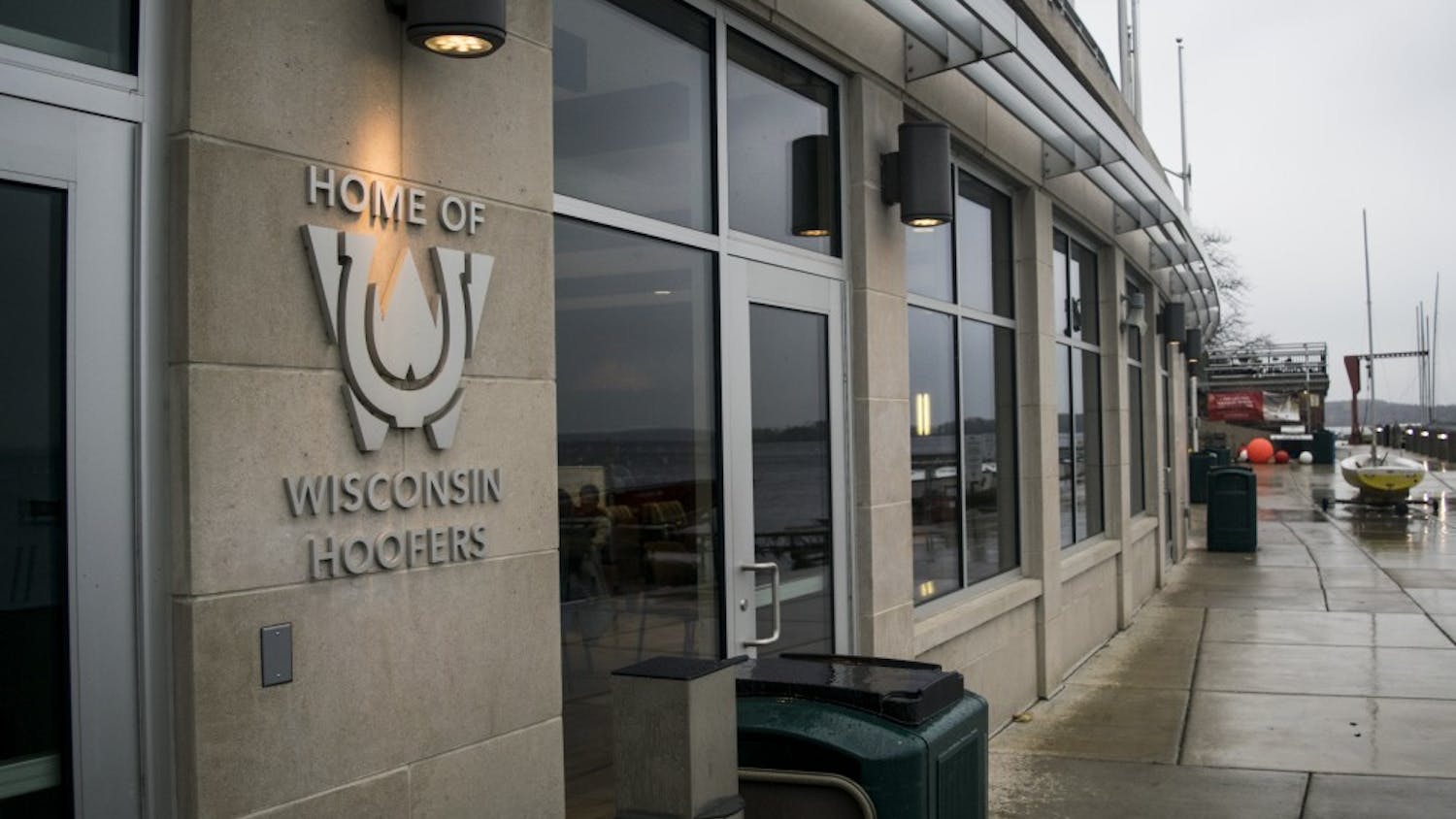From ingredients to plates to waste receptacles, producing the food served at UW System dining halls creates environmental waste at every step. However, administrative- and student-led programs have driven efforts to keep every part of the dining process sustainable.
Throughout the System, popular initiatives include composting waste and locally sourcing food. UW-Stout created campus composting standards in 2010 — now 99 percent of its non-permanent packaging and dinnerware is compostable.
As for locally sourcing, UW-River Falls purchases cosmetically imperfect foods from local farmers, limiting the waste from this produce that wouldn’t make it to grocery stores.
Trayless dining halls have also risen in numbers since 2008-’09, notably at campuses like UW-Superior, UW-La Crosse and UW-Oshkosh.
At UW-Oshkosh, the elimination of trays at dining facilities reduced food waste by 17 percent, according to the 2014 campus sustainability plan. The university was able to reduce this waste because trays encourage students to take more food than they’re able to eat, Director of the Campus Sustainability Office Brian Kermath explained.
“[Trayless dining] meant that students couldn't take as much food to their tables, and as a result there was less food waste,” Kermath said. “I think when you take trays away from students initially there's a little bit of 'Oh no, I can't take as much food now,' but of course they can always go back and get more. So they quickly realized that's not an issue.”
Many sustainable dining initiatives involve collaboration between students and administration, according to UW-Platteville Sustainability Coordinator Amy Seeboth-Wilson. For projects like campus composting — which Seeboth-Wilson said has increased 700 percent since 2015 — leftover food redistribution through the Pioneer Pantry program and trayless dining in the main campus dining area, student input was vital.
“[The programs have] all been really collaborative,” she said. “Students have driven a lot of the conversation, and then the Sustainability Office and Dining have been able to work together with others to figure out how to pull them off.”
Students also played a large role in UW-Stevens Point’s 2009 switch to become a self-operated dining facility, putting more control into the hands of students to make choices about how dining halls operate, Director of Dining and Summer Conferences Suzette Conley said.
“It was a student-run initiative,” Conley said. “They wanted more employment opportunities, they wanted more sustainability, they wanted more local, they wanted more involvement in their dining program.”
Student-led involvement across the UW System has taken action to eliminate straws in residential dining halls, which has taken root at UW-Madison and UW-River Falls, according to Director of University Center and Dining Services Cara Rubis.
Also campaigning for a straw-free campus is UW-La Crosse, noting straws’ inability to be recycled and potential ocean contamination as reasons why banning them are beneficial for the environment.
However, student participation in sustainability is not a new phenomenon, either, Rubis said.
In 1997, when UW-River Falls started planning the University Center, the location for residential and retail dining on campus, students voted to add $1 million — paid for through segregated fees in their tuition — to the project in order to pay for sustainability initiatives.
The students were then “greatly involved” in the planning of the University Center’s sustainability focus, Rubis said.
“Therefore, the students initiative to protect our environment was before the sustainability movement, so adding sustainable features to the building was not as easy and readily available as it is today,” Rubis wrote in an email. “Sustainability was important to our students back then, and that continues to be the case today.”
While the students at UW-River Falls may have voted to fund additional sustainability projects, the financial cost of sustainable dining remains a factor on many campuses.
For Kermath, students have to question how much they are willing to pay for sustainable dining.
“There's a point at which students will say, 'That's too expensive for us,’” he said.
For example, OZZI machines — which exchange dirty to-go containers for clean ones — cost approximately $10,000 per unit, so to place one in each of UW-Stevens Point’s 13 residence halls wouldn’t be affordable, Conley said.
Many UW System institutions also locally source their food, which can be another added cost when factoring in Wisconsin’s climate, Conley said.
“From a cost perspective, buying local is great if you're in the southern valley of California and things are available to you 24/7, 365 days of the year,” she said. “If you're not looking for beer and cranberries and wild rice, [buying local in Wisconsin] can be challenging. I think people need to just remember the reality of sustainability and how it impacts geographically where you're at.”
Along with environmental concerns, issues of convenience for students have created problems for sustainability initiatives across campuses.
UW-Stevens Point’s “Green on the Go” reusable container program has faced a lack of student enthusiasm, according to Conley.
“The use [of the containers] has been, in my opinion, pathetic,” she said. “[Students] don't seem to be interested in carrying their container. They don't seem to be interested in being inconvenienced with their container.”
UW-Stevens Point responded by charging 50 cents for each non-reusable container brought into dining halls, which initially caused some backlash before students accepted additional fees, Conley said.
In addition to students not wanting to carry around a reusable container, Conley cited problems with recycling education. Even with signs instructing students what goes in which bin, a lack of effort from the student makes the whole process “self-defeating,” Conley said.
“Students just throw stuff wherever they want to throw stuff,” she said. “You throw your banana peel in my recycling bin, my recycling bin just became trash.”
UW-Eau Claire Director for the Student Office of Sustainability Austin Northagen said his campus also faces a lack of education surrounding recycling in dining halls.
However, he found that in-person lessons are more effective than signage in teaching which products are recyclable, compostable and trash.
“We find a lot students when they come to our university in their first year, they may have never recycled before, let alone composted before,” Northagen said. “So we have to go through a lot of education ... but we find that interactions, fruitful conversations are far more effective than a poster will ever be.”
These efforts for sustainability education are not in vain, as UW System schools are rated comparatively well by the Sustainability Tracking, Assessment & Rating System for institutions across the nation.
Of the nine out of thirteen UW System campuses that participated in STARS, UW-Milwaukee, UW-Oshkosh, UW-River Falls and UW-Stevens Point received a gold rating. The remaining five universities — UW-Green Bay, UW-La Crosse, UW-Platteville, UW-Stout and UW-Whitewater — all received a silver rating. UW-Madison is currently working to submit a report to STARS and receive a rating of its own.
According to Seeboth-Wilson, Conley and Kermath, institutions across the UW System plan to continue their sustainable dining practices through future projects: a full audit of where food comes from at UW-Platteville, a new dining hall opening January 2020 at UW-Stevens Point and an expansion of the UW-Oshkosh campus garden.






